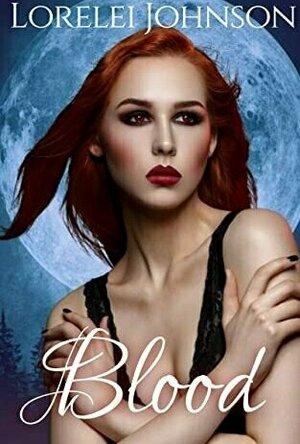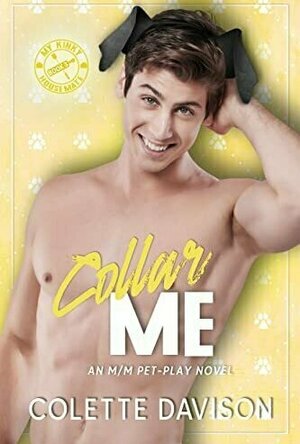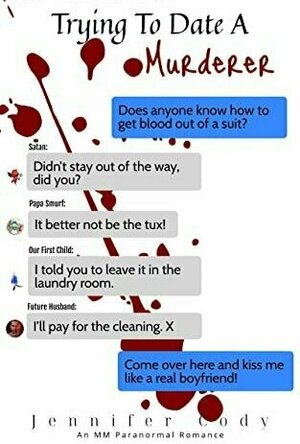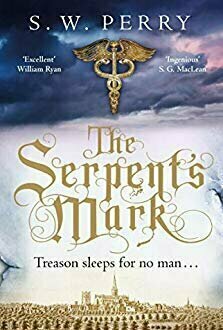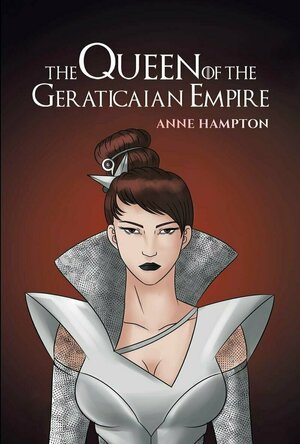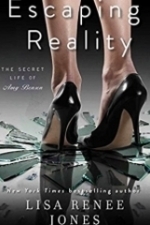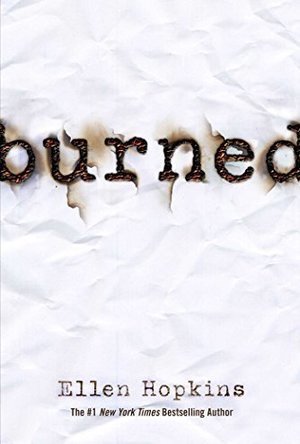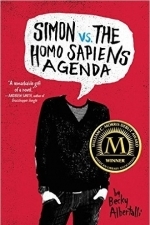Search
Search results
Merissa (13681 KP) rated Blood (The McLeod Brothers Trilogy #3) in Books
Jul 14, 2023
BLOOD is the third and final book in The McLeod Brothers trilogy and it's Finn's turn. He is the playboy brother, the one with a different woman every night. Fate matches him with Adelyn, a rare female vampire who is wanted by big bad Caine.
Adelyn is a great character, both strong and sassy even when her situation is dire. She will not be forced to bow to anyone, whether that is someone she loathes (Caine) or her fated mate. I loved reading about her solutions to problems and double-crossings with Caine as she tried to find out what he was up to so she could win her freedom.
Finn; well then. Finn, I had a small problem with. You see, there's been a lot made of him being captured by vampires when he was younger, and how he was changed when he came back. I wanted to know more about that - especially considering his fated is a vampire! Instead, I just got that he didn't feel the same about Adelyn. It felt a little flat, somehow. I never found out how he was captured, how he escaped/was released, how he coped with what had happened; things like that.
I also felt that Finn and Adelyn's personal story was a little overshadowed by Caine and their machinations to bring him to justice.
A good addition to the series but I was left wanting more.
** same worded review will appear elsewhere **
* A copy of this book was provided to me with no requirements for a review. I voluntarily read this book; the comments here are my honest opinion. *
Merissa
Archaeolibrarian - I Dig Good Books!
Jul 13, 2023
Adelyn is a great character, both strong and sassy even when her situation is dire. She will not be forced to bow to anyone, whether that is someone she loathes (Caine) or her fated mate. I loved reading about her solutions to problems and double-crossings with Caine as she tried to find out what he was up to so she could win her freedom.
Finn; well then. Finn, I had a small problem with. You see, there's been a lot made of him being captured by vampires when he was younger, and how he was changed when he came back. I wanted to know more about that - especially considering his fated is a vampire! Instead, I just got that he didn't feel the same about Adelyn. It felt a little flat, somehow. I never found out how he was captured, how he escaped/was released, how he coped with what had happened; things like that.
I also felt that Finn and Adelyn's personal story was a little overshadowed by Caine and their machinations to bring him to justice.
A good addition to the series but I was left wanting more.
** same worded review will appear elsewhere **
* A copy of this book was provided to me with no requirements for a review. I voluntarily read this book; the comments here are my honest opinion. *
Merissa
Archaeolibrarian - I Dig Good Books!
Jul 13, 2023
Merissa (13681 KP) rated Collar Me (My Kinky Housemate #3) by Colette Davison in Books
May 18, 2022 (Updated Jun 19, 2023)
COLLAR ME is the third book in the My Kinky Housemate series and definitely best read as part of the series, although you could read it as a standalone.
We've already met both Theo and Preston but now it's their time to shine. Preston swoops in like a superhero when Theo's trainer dumps him just before a show. Preston knows nothing about being a trainer but, for Theo, will do whatever it takes. Theo thinks the world of Preston but mistakenly thinks that Preston only sees him as a little brother. So hold onto your hats when Preston puts him straight!
I think I may have more than a handful of cavities after reading this one. They are cute/adorable/all the warm and fuzzy words. I would class this as low-angst as Theo does have to deal with some harassment but has the full support of Preston and his housemates. It's pretty clear who's doing it, but that isn't the main point. It is also hot, hot, hot! Theo's fantasy? Phew! Down, boy! And the thing I loved about it most of all is that it wasn't without 'issues'. Not that Theo seemed disappointed about more practice! Nor was Preston, for that matter.
I am loving this series. Hendrix is the house brat but he has a heart of gold. I can't wait for his story. Absolutely recommended by me.
** same worded review will appear elsewhere **
* A copy of this book was provided to me with no requirements for a review. I voluntarily read this book; the comments here are my honest opinion. *
Merissa
Archaeolibrarian - I Dig Good Books!
May 13 2022
We've already met both Theo and Preston but now it's their time to shine. Preston swoops in like a superhero when Theo's trainer dumps him just before a show. Preston knows nothing about being a trainer but, for Theo, will do whatever it takes. Theo thinks the world of Preston but mistakenly thinks that Preston only sees him as a little brother. So hold onto your hats when Preston puts him straight!
I think I may have more than a handful of cavities after reading this one. They are cute/adorable/all the warm and fuzzy words. I would class this as low-angst as Theo does have to deal with some harassment but has the full support of Preston and his housemates. It's pretty clear who's doing it, but that isn't the main point. It is also hot, hot, hot! Theo's fantasy? Phew! Down, boy! And the thing I loved about it most of all is that it wasn't without 'issues'. Not that Theo seemed disappointed about more practice! Nor was Preston, for that matter.
I am loving this series. Hendrix is the house brat but he has a heart of gold. I can't wait for his story. Absolutely recommended by me.
** same worded review will appear elsewhere **
* A copy of this book was provided to me with no requirements for a review. I voluntarily read this book; the comments here are my honest opinion. *
Merissa
Archaeolibrarian - I Dig Good Books!
May 13 2022
Merissa (13681 KP) rated The Trouble with Trying to Date a Murderer (Murder Sprees and Mute Decrees #1) in Books
Mar 17, 2022 (Updated Jul 3, 2023)
THE TROUBLE WITH TRYING TO DATE A MURDERER is the first book in a new series by Jennifer Cody, Murder Sprees and Mute Decrees.
Told from Romily's point of view, we find out he had his vocal cords removed as a child, and lived through two mass murder attempts. For someone who is mute, he has a lot to say! And he manages just fine - so long as he has his trust mobile phone to hand, plus his attitude - he is able to get his meaning across.
I wasn't too sure about reading this book as Rom-Com isn't really my thing, due to the very personal nature of humour. However, I would say that Ms Cody has pulled this off brilliantly. The story keeps moving along, helped by Romily's sass, and you will be swept away by it.
I do wish it had had more in the way of world-building and relationship-building. The world wasn't so hard because I just simply saw it as contemporary and that was it. But I do like some build-up to the relationship side. I read more about who and what a Harbinger is and does than I did about how Romily and Fox went from being attracted to so much more.
Still, this was a thoroughly enjoyable, wacky, crazy book that I have no hesitation in recommending.
** same worded review will appear elsewhere **
* A copy of this book was provided to me with no requirements for a review. I voluntarily read this book, and the comments here are my honest opinion. *
Merissa
Archaeolibrarian - I Dig Good Books!
Mar 10, 2022
Told from Romily's point of view, we find out he had his vocal cords removed as a child, and lived through two mass murder attempts. For someone who is mute, he has a lot to say! And he manages just fine - so long as he has his trust mobile phone to hand, plus his attitude - he is able to get his meaning across.
I wasn't too sure about reading this book as Rom-Com isn't really my thing, due to the very personal nature of humour. However, I would say that Ms Cody has pulled this off brilliantly. The story keeps moving along, helped by Romily's sass, and you will be swept away by it.
I do wish it had had more in the way of world-building and relationship-building. The world wasn't so hard because I just simply saw it as contemporary and that was it. But I do like some build-up to the relationship side. I read more about who and what a Harbinger is and does than I did about how Romily and Fox went from being attracted to so much more.
Still, this was a thoroughly enjoyable, wacky, crazy book that I have no hesitation in recommending.
** same worded review will appear elsewhere **
* A copy of this book was provided to me with no requirements for a review. I voluntarily read this book, and the comments here are my honest opinion. *
Merissa
Archaeolibrarian - I Dig Good Books!
Mar 10, 2022
Haley Mathiot (9 KP) rated A Quilter's Diary: Written in Stitches in Books
Apr 27, 2018
Description (from Amazon): Ever wanted to write the story of your life? With fabric as your paper and a needle as your pen, you can chronicle your most memorable moments. Bestselling author Mimi Dietrich explains how to tell your personal story or the story of someone special to you in extraordinary quilts.
* Construct the pieces of your life in fabric with your choice of 100 pieced and appliquéd block patterns
* Let Mimi guide your designs with inspiring questions and themes 24 categories include family, friends, holidays, hobbies, and more
* A gallery of quilts, plus Mimi s unique setting tips, will help you launch your own ideas
A Quilter’s Diary is a simple guide book to telling your life story in quilt blocks. Mimi tells you how to pick the blocks, arrange the quilt in order, and make each square special and unique to you.
There are tons of blocks to pick from, and she encourages you to branch out from her suggestions and take a creative license, showing examples and giving ideas.
(Here is one page from the book with some ideas for a “hobby” quilt block. See the books on the left? Guess what’s going on my quilt!)
(photo url: http://lh3.ggpht.com/_-sER6e5xCaQ/S0K4VzGxaBI/AAAAAAAABgc/i_AHcoFr-hU/DSCN0052_thumb%5B2%5D.jpg?imgmax=800)
Some of the quilt squares that are suggested are: Heritage, Childhood, Parents, Grandparents, First Love, True Love, Wedding, Children, Pets, Seasons, Travel, Dreams and wishes… and tons more. Each theme has seven or eight ideas for you to use, or you can create your own using the theme.
Every quilt block has questions that you can answer to inspire you. They make you think about important things and decide what kind of square you’d like to make.
There was also some basic quilt making instructions and appliqué and embroidery instructions that are clear and concise with very good illustrations.
Then there were photographs of quilts. Oh the quilts were just beautiful! So artistic in every way.
This book had my mouth watering and my fingers itching for fabric and embroidery floss. The idea of a quilt as a diary and a permanent keepsake is an old one, but it looks so much less intimidating through this book because of the way it’s presented.
This book is incredibly inspiring, and I intend to start my own quilt diary. It will take years to finish because I don’t have much to share right now, but I’m sure as life goes on, with the help of this book, I’ll have a very special and unique keepsake when it’s finally done.
About the Author:
Mimi Dietrich is a nationally known teacher and the author of many best-selling books, including Martingale & Company's all-time best-seller, Happy Endings. Her books have sold over a half million copies to date. This is her 15th book for Martingale and Company
~Haleyknitz
* Construct the pieces of your life in fabric with your choice of 100 pieced and appliquéd block patterns
* Let Mimi guide your designs with inspiring questions and themes 24 categories include family, friends, holidays, hobbies, and more
* A gallery of quilts, plus Mimi s unique setting tips, will help you launch your own ideas
A Quilter’s Diary is a simple guide book to telling your life story in quilt blocks. Mimi tells you how to pick the blocks, arrange the quilt in order, and make each square special and unique to you.
There are tons of blocks to pick from, and she encourages you to branch out from her suggestions and take a creative license, showing examples and giving ideas.
(Here is one page from the book with some ideas for a “hobby” quilt block. See the books on the left? Guess what’s going on my quilt!)
(photo url: http://lh3.ggpht.com/_-sER6e5xCaQ/S0K4VzGxaBI/AAAAAAAABgc/i_AHcoFr-hU/DSCN0052_thumb%5B2%5D.jpg?imgmax=800)
Some of the quilt squares that are suggested are: Heritage, Childhood, Parents, Grandparents, First Love, True Love, Wedding, Children, Pets, Seasons, Travel, Dreams and wishes… and tons more. Each theme has seven or eight ideas for you to use, or you can create your own using the theme.
Every quilt block has questions that you can answer to inspire you. They make you think about important things and decide what kind of square you’d like to make.
There was also some basic quilt making instructions and appliqué and embroidery instructions that are clear and concise with very good illustrations.
Then there were photographs of quilts. Oh the quilts were just beautiful! So artistic in every way.
This book had my mouth watering and my fingers itching for fabric and embroidery floss. The idea of a quilt as a diary and a permanent keepsake is an old one, but it looks so much less intimidating through this book because of the way it’s presented.
This book is incredibly inspiring, and I intend to start my own quilt diary. It will take years to finish because I don’t have much to share right now, but I’m sure as life goes on, with the help of this book, I’ll have a very special and unique keepsake when it’s finally done.
About the Author:
Mimi Dietrich is a nationally known teacher and the author of many best-selling books, including Martingale & Company's all-time best-seller, Happy Endings. Her books have sold over a half million copies to date. This is her 15th book for Martingale and Company
~Haleyknitz
Cynthia Armistead (17 KP) rated All Clear (All Clear, #2) in Books
Mar 1, 2018
Well, this volume moved much more quickly than [b:Blackout|6506307|Blackout|Connie Willis|https://d.gr-assets.com/books/1402428101s/6506307.jpg|6697901] did! Having read a brief piece written by Ms. Willis thanking those who stood by her as one book spread into two, I think I have a slightly better understanding now of what happened that led to my unhappiness with the way the first book ended. They really shouldn't be two books, but they couldn't physically fit into one volume. Or, for many e-readers, one ebook.
It is still a large book! And, as in [b:Blackout|6506307|Blackout|Connie Willis|https://d.gr-assets.com/books/1402428101s/6506307.jpg|6697901], it isn't always clear just who a character is. I'm reading along happily and all of a sudden, there's a new main character! Wait, who is this? Has Colin gotten through somehow? Or is it another historian? Or another trip by one of the people we already know? Or--but--…Ms. Willis does a marvelous job of keeping us guessing. And the historians' habit of using different names on different assignments meant that I didn't always know which person I was reading about even when I thought I did know who he or she was! The reader has to catch the tiniest details to know that something isn't quite right, or be left completely surprised at the reveal! The many references to [a:Agatha Christie|123715|Agatha Christie|https://d.gr-assets.com/authors/1321738793p2/123715.jpg] are definitely meaningful, and I've come to believe that I haven't read nearly enough of her work!
I've always considered Ms. Willis a cerebral author, but my emotions were heavily engaged here. The analogy of Polly, Sir Godfrey, and <i>The Admirable Crichton</i> was so apt, and that dreadful business in the Phoenix had me bawling. By the time a hero we'd grown to know and love dearly fell, and fell so, so close to home, I was a basket case.
After finishing this massive duology (which really should count as one enormous book spread across two volumes), you would think that I would be sick and tired of all things Willis and not want to read another word by her for the next year or so. Instead, I want to know, right now, what comes next. I want to read about Eileen and the Vicar, and watch Alf and Binnie grow up. I want to see Polly and Colin's relationship grow.
I imagine Ms. Willis is rather tired of all of them, though, and happy to rest for a while and remember what it is to live back in this century again. The Oxford Time Travel universe offers so many rich and fascinating possibilities for fiction, and I hope she chooses to write many more novels set in it. I'll definitely be willing to read them!
It is still a large book! And, as in [b:Blackout|6506307|Blackout|Connie Willis|https://d.gr-assets.com/books/1402428101s/6506307.jpg|6697901], it isn't always clear just who a character is. I'm reading along happily and all of a sudden, there's a new main character! Wait, who is this? Has Colin gotten through somehow? Or is it another historian? Or another trip by one of the people we already know? Or--but--…Ms. Willis does a marvelous job of keeping us guessing. And the historians' habit of using different names on different assignments meant that I didn't always know which person I was reading about even when I thought I did know who he or she was! The reader has to catch the tiniest details to know that something isn't quite right, or be left completely surprised at the reveal! The many references to [a:Agatha Christie|123715|Agatha Christie|https://d.gr-assets.com/authors/1321738793p2/123715.jpg] are definitely meaningful, and I've come to believe that I haven't read nearly enough of her work!
I've always considered Ms. Willis a cerebral author, but my emotions were heavily engaged here. The analogy of Polly, Sir Godfrey, and <i>The Admirable Crichton</i> was so apt, and that dreadful business in the Phoenix had me bawling. By the time a hero we'd grown to know and love dearly fell, and fell so, so close to home, I was a basket case.
After finishing this massive duology (which really should count as one enormous book spread across two volumes), you would think that I would be sick and tired of all things Willis and not want to read another word by her for the next year or so. Instead, I want to know, right now, what comes next. I want to read about Eileen and the Vicar, and watch Alf and Binnie grow up. I want to see Polly and Colin's relationship grow.
I imagine Ms. Willis is rather tired of all of them, though, and happy to rest for a while and remember what it is to live back in this century again. The Oxford Time Travel universe offers so many rich and fascinating possibilities for fiction, and I hope she chooses to write many more novels set in it. I'll definitely be willing to read them!
Ivana A. | Diary of Difference (1171 KP) rated The Serpent's Mark in Books
Feb 3, 2020
<a href="https://diaryofdifference.com/">Blog</a>; | <a href="https://www.facebook.com/diaryofdifference/">Facebook</a>; | <a href="https://twitter.com/DiaryDifference">Twitter</a>; | <a href="https://www.instagram.com/diaryofdifference/">Instagram</a>; | <a href="https://www.pinterest.co.uk/diaryofdifference/pins/">Pinterest</a>;
<b>Nicholas Shelby Series</b>
#1 <a href="https://www.goodreads.com/book/show/39904044-the-angel-s-mark">The Angel's Mark</a> - Not Read
#2 <a href="https://www.goodreads.com/review/show/2849284383">The Serpent's Mark</a> - DNF
<img src="https://diaryofdifference.com/wp-content/uploads/2019/06/Book-Review-Banner-1.png"/>;
<b><i>The first book in 2019 that I didn't manage to finish is The Serpent's Mark by S.W. Perry.</i></b>
I am sad and disappointed. If you know me, you will know how I don't want to leave things unfinished, especially when reading books. I want to finish every book I read, so I can have a thorough opinion and valid comments.
I stopped reading this book at page 75, which is very early days, but I just couldn't continue because of a few points.
Before I start, I need to mention all the things that attracted me to this book in the first place. I love mysteries, and this book promised conspiracy, murder and espionage in Elizabethan London. It is set in the year 1591, where a doctor is investigated of his questionable practices. This was, by itself a promising start. And if you haven't seen the beautiful cover already, please do. It's art to have this book on your shelves.
However, while reading those 75 pages, I haven't encountered any murder. Conspiracy and espionage maybe, but it is so subtle, that everything else comes in first place, while I am here, flipping pages and desperately waiting for something to happen.
A book that contains a lot of politics and religion in a same chapter is just not the book for me. As a person that moved into the UK, I know a little bit about politics and not much about history politics, but I am also not very interested in it either. Documentaries, yes - but books for pleasure, not quite so much. This book was over-flooding with politics and religion, and it is something I just couldn't put past me. After deciding to DNF it, I also realized that it was a second book of a series, but can also be read as a standalone.
I wish I enjoyed it, but I just couldn't. However, if the book seems like something you might enjoy, please go for it, read it, and let me know how it went. <b>We all have different tastes in book - and that's OKAY! :)</b>
Thank you to ReadersFirst, a UK based website that sends me books every month in exchange for my honest reviews. What you do it absolutely amazing!
<a href="https://diaryofdifference.com/">Blog</a>; | <a href="https://www.facebook.com/diaryofdifference/">Facebook</a>; | <a href="https://twitter.com/DiaryDifference">Twitter</a>; | <a href="https://www.instagram.com/diaryofdifference/">Instagram</a>; | <a href="https://www.pinterest.co.uk/diaryofdifference/pins/">Pinterest</a>;
<b>Nicholas Shelby Series</b>
#1 <a href="https://www.goodreads.com/book/show/39904044-the-angel-s-mark">The Angel's Mark</a> - Not Read
#2 <a href="https://www.goodreads.com/review/show/2849284383">The Serpent's Mark</a> - DNF
<img src="https://diaryofdifference.com/wp-content/uploads/2019/06/Book-Review-Banner-1.png"/>;
<b><i>The first book in 2019 that I didn't manage to finish is The Serpent's Mark by S.W. Perry.</i></b>
I am sad and disappointed. If you know me, you will know how I don't want to leave things unfinished, especially when reading books. I want to finish every book I read, so I can have a thorough opinion and valid comments.
I stopped reading this book at page 75, which is very early days, but I just couldn't continue because of a few points.
Before I start, I need to mention all the things that attracted me to this book in the first place. I love mysteries, and this book promised conspiracy, murder and espionage in Elizabethan London. It is set in the year 1591, where a doctor is investigated of his questionable practices. This was, by itself a promising start. And if you haven't seen the beautiful cover already, please do. It's art to have this book on your shelves.
However, while reading those 75 pages, I haven't encountered any murder. Conspiracy and espionage maybe, but it is so subtle, that everything else comes in first place, while I am here, flipping pages and desperately waiting for something to happen.
A book that contains a lot of politics and religion in a same chapter is just not the book for me. As a person that moved into the UK, I know a little bit about politics and not much about history politics, but I am also not very interested in it either. Documentaries, yes - but books for pleasure, not quite so much. This book was over-flooding with politics and religion, and it is something I just couldn't put past me. After deciding to DNF it, I also realized that it was a second book of a series, but can also be read as a standalone.
I wish I enjoyed it, but I just couldn't. However, if the book seems like something you might enjoy, please go for it, read it, and let me know how it went. <b>We all have different tastes in book - and that's OKAY! :)</b>
Thank you to ReadersFirst, a UK based website that sends me books every month in exchange for my honest reviews. What you do it absolutely amazing!
<a href="https://diaryofdifference.com/">Blog</a>; | <a href="https://www.facebook.com/diaryofdifference/">Facebook</a>; | <a href="https://twitter.com/DiaryDifference">Twitter</a>; | <a href="https://www.instagram.com/diaryofdifference/">Instagram</a>; | <a href="https://www.pinterest.co.uk/diaryofdifference/pins/">Pinterest</a>;
Night Reader Reviews (683 KP) rated The Queen Of The Geraticaian Empire in Books
Jan 9, 2020
The Queen of the Geraticaian Empire by Anna Hampton is the third book in The Two Worlds of Geratica Series. This book continues perfectly from where there the previous book left off. I am also happy to see that this is not the final book in the Geratica series. I look forward to seeing the world(s) carry on.
At the direction of The Mistress, Alexandra creates the first Constitution of Geratica that is adopted by the new government. Two main political parties form, Conservatives and Radicals, and elections begin. Elizabeth surprisingly joins the Conservative Party alongside Linda instead of the Radicals as everyone expected after her involvement with the Male Rights Protesters. Unsurprisingly Linda also runs in the elections, not wanting to give up her power. Meanwhile, Alexandra graduates from Castra University and starts looking for employment.
Things are not all smooth sailing though as conditions in Geraticai are still out of balance. The woman placed there from Geratica to be their Queen is put in jail by her own sister-in-law in a play for the throne. The sister-in-laws seat is not secure either as the Hybrid living inside the Mistress starts thinking up ways to get back at those in Geratica it feels wronged it. The Hybrid plans to attack Geratica, specifically targeting Queen Alexandra and Linda in order to name itself The Queen of the Geraticaian Empire.
What I liked best about this one was how the characters evolved over the course of the book. Linda is starting to relax on her views and accept that times are changing. Other characters are evolving and growing as well, yet her transformation is the most shocking. Although this book was packed full of surprises. There is once again very little that I can negatively say about this book. Having to choose something I would pick the issue of transport between Geratica and Geraticai after the two are separated. It states that direct travel through the transport capsules is no longer possible yet there are a few connected to the Mistress who can still do it so why not everyone?
The target readers for this book remains the same as the first two. That means this book is geared towards adult female readers more so than other groups. While there isnt as much sex in this one as the previous two books, politics and the occurrence of rape still keeps it at an adult level. I rate this book 4 out of 4. For many books, as the series moves on it starts to lose something and just rides off of the popularity of earlier books. That is not the case with this book. I found this book to be just as well written and compelling as the first two in the series.
https://nightreaderreviews.blogspot.com/
https://www.facebook.com/nightreaderreviews/
https://www.austinmacauley.com/book/queen-geraticaian-empire
At the direction of The Mistress, Alexandra creates the first Constitution of Geratica that is adopted by the new government. Two main political parties form, Conservatives and Radicals, and elections begin. Elizabeth surprisingly joins the Conservative Party alongside Linda instead of the Radicals as everyone expected after her involvement with the Male Rights Protesters. Unsurprisingly Linda also runs in the elections, not wanting to give up her power. Meanwhile, Alexandra graduates from Castra University and starts looking for employment.
Things are not all smooth sailing though as conditions in Geraticai are still out of balance. The woman placed there from Geratica to be their Queen is put in jail by her own sister-in-law in a play for the throne. The sister-in-laws seat is not secure either as the Hybrid living inside the Mistress starts thinking up ways to get back at those in Geratica it feels wronged it. The Hybrid plans to attack Geratica, specifically targeting Queen Alexandra and Linda in order to name itself The Queen of the Geraticaian Empire.
What I liked best about this one was how the characters evolved over the course of the book. Linda is starting to relax on her views and accept that times are changing. Other characters are evolving and growing as well, yet her transformation is the most shocking. Although this book was packed full of surprises. There is once again very little that I can negatively say about this book. Having to choose something I would pick the issue of transport between Geratica and Geraticai after the two are separated. It states that direct travel through the transport capsules is no longer possible yet there are a few connected to the Mistress who can still do it so why not everyone?
The target readers for this book remains the same as the first two. That means this book is geared towards adult female readers more so than other groups. While there isnt as much sex in this one as the previous two books, politics and the occurrence of rape still keeps it at an adult level. I rate this book 4 out of 4. For many books, as the series moves on it starts to lose something and just rides off of the popularity of earlier books. That is not the case with this book. I found this book to be just as well written and compelling as the first two in the series.
https://nightreaderreviews.blogspot.com/
https://www.facebook.com/nightreaderreviews/
https://www.austinmacauley.com/book/queen-geraticaian-empire
Whatchareadin (174 KP) rated Escaping Reality (The Secret Life of Amy Bensen, #1) in Books
Apr 9, 2019
Amy Bensen is on a plane to Denver to start a new life when she meets Liam Stone. From the moment she first lays eyes on him, there is something about him that she is instantly drawn to. Knowing she is on the run, will she be able to trust Liam in order to share a life with him, or will she always be on the run from a past she is uncertain about.
Thank you to NetGalley and Gallery Books for the opportunity to read and review this book.
Amy Bensen has only been Amy Bensen for a few hours. She received a notice from her handler that it was time to move on, since he had found her. Now she is on the way to a new city to start a new life and she has no idea how that is going to work. Having to look over her shoulder all of the time and always be on alert for someone lurking around a corner is no way to live. But this is the only way she has to survive now. Meeting Liam on the plane to Denver has her thinking about this man in a way she has never thought about anyone. Can he be someone she will be able to trust or is he a part of the people who are after her.
Amy is hiding a lot about her past. Some things she remembers and other details are foggy in her brain. Sexy billionaire Liam Stone, makes somethings disappear from Amy's mind, but only briefly. Their instant connection scares her.
This book reminded me a little of Fifty Shades of Grey. With the intensity of Liam Stone and his controlling personality, and of course the sex. Overall the book was interesting and I'm curious to see how it will all end for Liam and Amy. If she will find out what happened in her past and if she can start to live normal life again. Will she be able to do that with Liam, or will he be the person who keeps her from finding the truth?
Thank you to NetGalley and Gallery Books for the opportunity to read and review this book.
Amy Bensen has only been Amy Bensen for a few hours. She received a notice from her handler that it was time to move on, since he had found her. Now she is on the way to a new city to start a new life and she has no idea how that is going to work. Having to look over her shoulder all of the time and always be on alert for someone lurking around a corner is no way to live. But this is the only way she has to survive now. Meeting Liam on the plane to Denver has her thinking about this man in a way she has never thought about anyone. Can he be someone she will be able to trust or is he a part of the people who are after her.
Amy is hiding a lot about her past. Some things she remembers and other details are foggy in her brain. Sexy billionaire Liam Stone, makes somethings disappear from Amy's mind, but only briefly. Their instant connection scares her.
This book reminded me a little of Fifty Shades of Grey. With the intensity of Liam Stone and his controlling personality, and of course the sex. Overall the book was interesting and I'm curious to see how it will all end for Liam and Amy. If she will find out what happened in her past and if she can start to live normal life again. Will she be able to do that with Liam, or will he be the person who keeps her from finding the truth?
Dana (24 KP) rated Burned (Burned, #1) in Books
Mar 23, 2018
I honestly didn't know how I would feel about this book. I haven't been having the best week or so, so I didn't necessarily want to read something too heavy. While this book did have a lot of heavy themes, it wasn't too dark for me, which I was glad about.
The rest of this review will have some spoilers, so read at your own peril.
I didn't really know much about this book as I was going into it. My roommate gave it to me on a recommendation, so I read it the next day and I really enjoyed it. I know it came out ages ago, but I don't think I was really emotionally mature enough to really appreciate the story. Overall, I am glad I waited until I was a bit older.
Even though it is close to 550 pages, it doesn't feel that long because of the way it is set up. The poetry gives it a fresh perspective and a very interesting storytelling perspective. I absolutely loved the formatting, especially the shapes of the poems.
This book talks a lot about religion, abuse (specially religious and familial abuse), independence, sex, and relationships in a very mature, yet approachable way.
This book supports the idea that you should get help from someone when you need it-even if it is not the authorities.
It was interesting to see Pattyn's development throughout the book, as heartbreaking as it was. She starts off as such a timid, rule-abiding girl, and then turns into someone with her own thoughts and morals. I feel like that as she was able to experience more, she grew into her own person to an extent.
I love Aunt Jeanette-she just wants what is best for Pattyn.
The ending crushed me. I just wanted Pattyn to be happy with Ethan, but no. It just had to come to a horrible end, didn't it?
Sorry this review is pretty short. I can't really find all the right ways to say what I'm thinking about this book.
Overall, I enjoyed the book and I think I will check out more of Ellen Hopkins's books.
The rest of this review will have some spoilers, so read at your own peril.
I didn't really know much about this book as I was going into it. My roommate gave it to me on a recommendation, so I read it the next day and I really enjoyed it. I know it came out ages ago, but I don't think I was really emotionally mature enough to really appreciate the story. Overall, I am glad I waited until I was a bit older.
Even though it is close to 550 pages, it doesn't feel that long because of the way it is set up. The poetry gives it a fresh perspective and a very interesting storytelling perspective. I absolutely loved the formatting, especially the shapes of the poems.
This book talks a lot about religion, abuse (specially religious and familial abuse), independence, sex, and relationships in a very mature, yet approachable way.
This book supports the idea that you should get help from someone when you need it-even if it is not the authorities.
It was interesting to see Pattyn's development throughout the book, as heartbreaking as it was. She starts off as such a timid, rule-abiding girl, and then turns into someone with her own thoughts and morals. I feel like that as she was able to experience more, she grew into her own person to an extent.
I love Aunt Jeanette-she just wants what is best for Pattyn.
The ending crushed me. I just wanted Pattyn to be happy with Ethan, but no. It just had to come to a horrible end, didn't it?
Sorry this review is pretty short. I can't really find all the right ways to say what I'm thinking about this book.
Overall, I enjoyed the book and I think I will check out more of Ellen Hopkins's books.
Jessica - Where the Book Ends (15 KP) rated Simon vs. the Homo Sapiens Agenda in Books
Jan 30, 2019
I’ve heard so much hype about Simon vs. the Homo Sapiens Agenda that I was a little afraid to read it. I am one of those people that usually dislikes books that everyone raves about. Or it gets so much hype that it doesn’t live up to the hype. Anyway… This book lived up to the hype. This book was great! I loved Simon and his voice. He was awkward, down to earth, funny, and witty. I want Simon to be my best friend. Some of the supporting characters I wasn’t super fond of. Abby, and Nick were just kind of there for me. I also didn’t think that Alice was a necessary character. We didn’t get to know her in any way. I would have loved to have seen more of Simon’s parents and more of Leah. I am dying to read Leah on the Offbeat.
The emails back and forth between Simon and Blue were amazing and about 10 times throughout the book I was 100% sure I knew who Blue was, and I was completely off. I loved having that surprise element and having the suspense until the end. I think having that suspense kept me on the edge of my seat and reading because I had to know who Blue was.
It took me about 3 days to read this book, and I’m a slow reader, so for me 3 days is pretty incredible. The authors writing style worked really well for me and she did an amazing job of giving each of the characters their own voice and sticking with it. Often times I see where the beginning of the book characters have their own voice and then by the end they all start to sound the same.
Over all I really enjoyed this book, the adventure, the characters, and the growth the characters experienced. I highly recommend this book to everyone. I think it’s a great quick read that will teach you not to fight who you are, you are you and that is amazing. It also teaches you about the impact that you can have on another person’s life, so be kind and choose your words and your actions carefully. Be kind.
The emails back and forth between Simon and Blue were amazing and about 10 times throughout the book I was 100% sure I knew who Blue was, and I was completely off. I loved having that surprise element and having the suspense until the end. I think having that suspense kept me on the edge of my seat and reading because I had to know who Blue was.
It took me about 3 days to read this book, and I’m a slow reader, so for me 3 days is pretty incredible. The authors writing style worked really well for me and she did an amazing job of giving each of the characters their own voice and sticking with it. Often times I see where the beginning of the book characters have their own voice and then by the end they all start to sound the same.
Over all I really enjoyed this book, the adventure, the characters, and the growth the characters experienced. I highly recommend this book to everyone. I think it’s a great quick read that will teach you not to fight who you are, you are you and that is amazing. It also teaches you about the impact that you can have on another person’s life, so be kind and choose your words and your actions carefully. Be kind.
